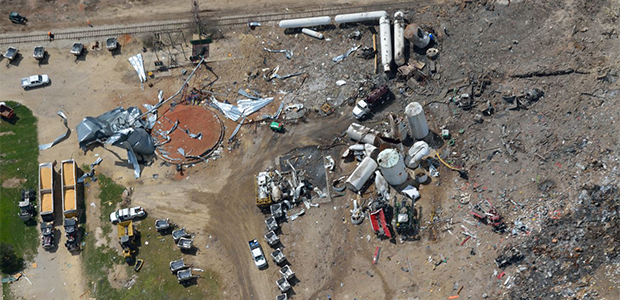
West Report Documents Extent of Traumatic Brain Injuries
Twenty-one percent of the 262 people who sustained non-fatal injuries when the ammonium nitrate facility exploded suffered a TBI, according to a report released June 24 by public health officials in Texas.
A new 17-page report documents the extent of the injuries caused by the April 17, 2013, explosion at the West Fertilizer Company facility in the city of West, Texas. Prepared by a team that included personnel from the Waco-McLennan County Public Health District and the Texas Department of State Health Services – including epidemiologists, public health nurses, physicians, and preparedness professionals -- it assessed all of the injuries, including the 15 fatalities. The injury rate among the city's 2,831 residents was 7 percent, it states.
It says 61 percent of the 262 patients with non-fatal injuries were women, average age 53.6 years – 72 of whom were residents of the West Rest Haven nursing home, which was heavily damaged by the explosion.
Abrasions and contusions were the most common type of non-fatal injury, affecting more than half of the injured patients. Lacerations and penetrating trauma ranked second, and traumatic brain injury/concussion ranked third, affecting 21 percent of the injured patients. Tinnitus/hearing problems and eye injuries ranked fourth and fifth, respectively. All patients who were admitted to a hospital were no more than 1,500 feet away from the epicenter of the explosion, it states.
The report includes recommendations for the general public, including that families should develop a family emergency plan in case a disaster should affect their community.
During the team's eight-month investigation, it consulted with CDC and Oklahoma State Department of Health experts about blast and disaster injuries. The reports notes that about one-third of the Oklahoma City bombing survivors reported hearing loss or tinnitus in the year after the explosion, while only 12 percent of the injured patients in this West study have.